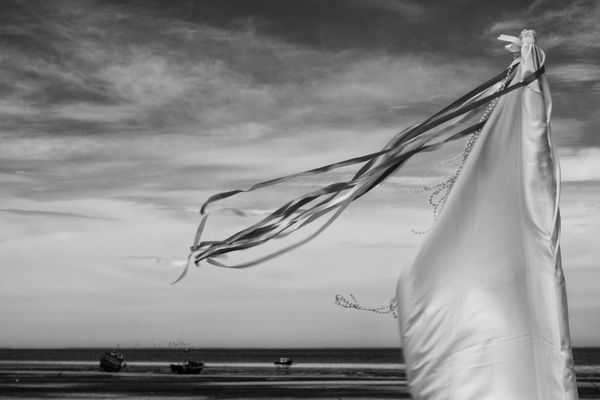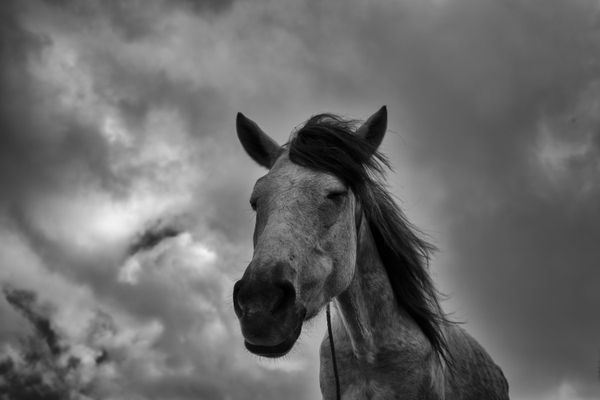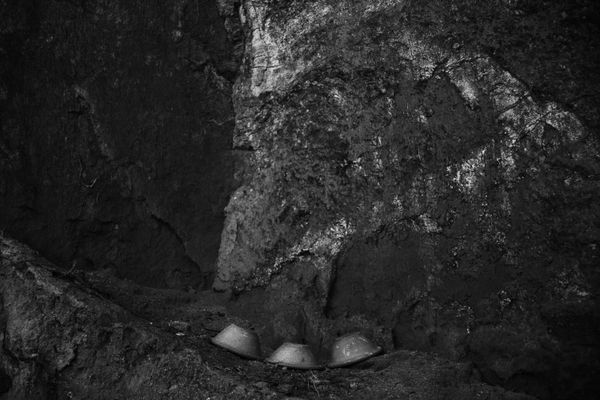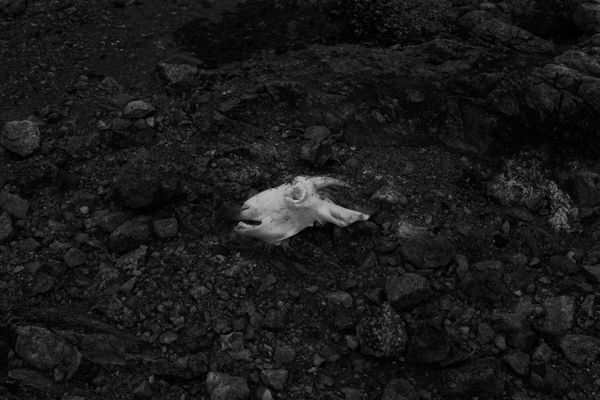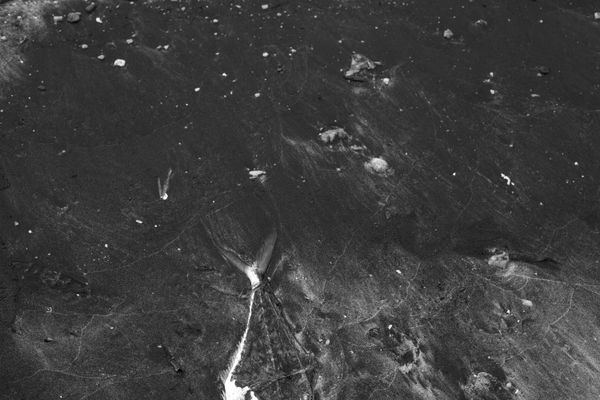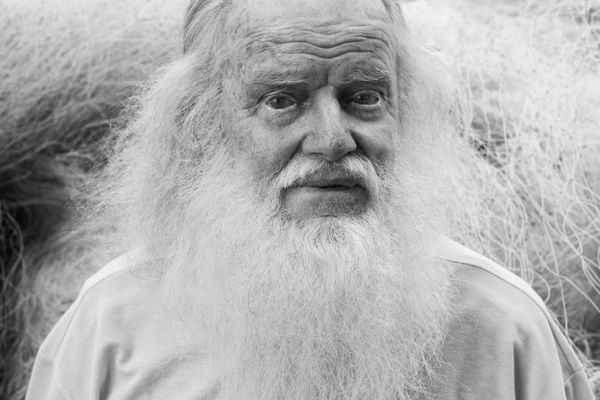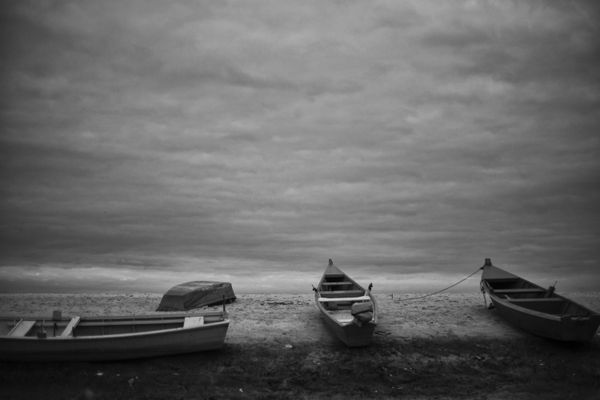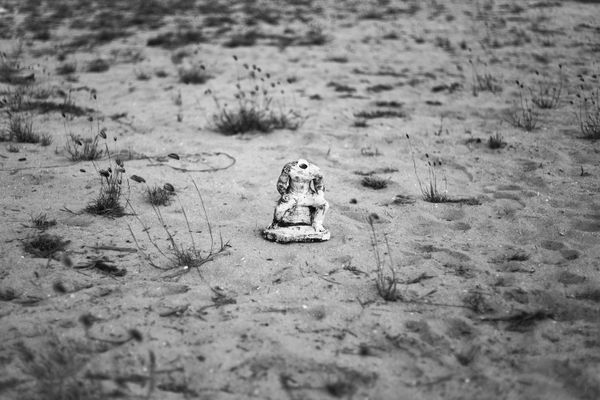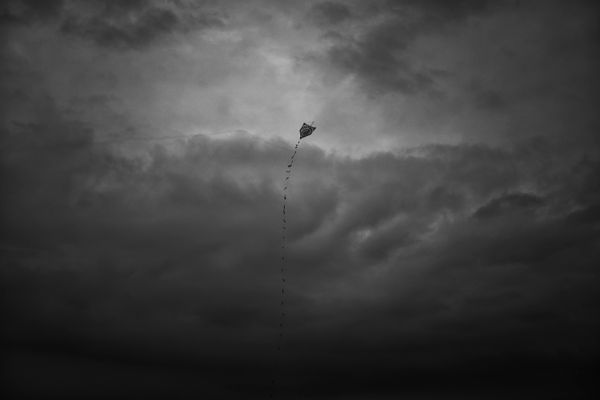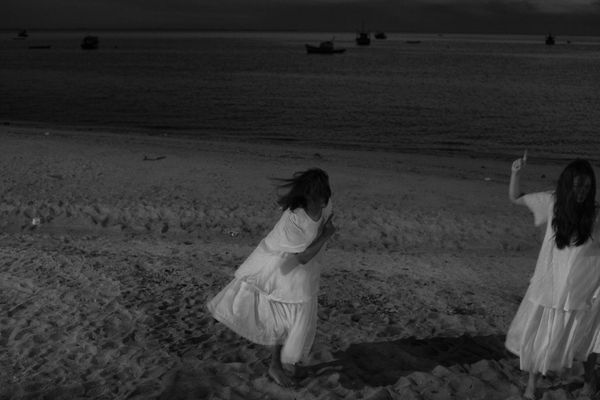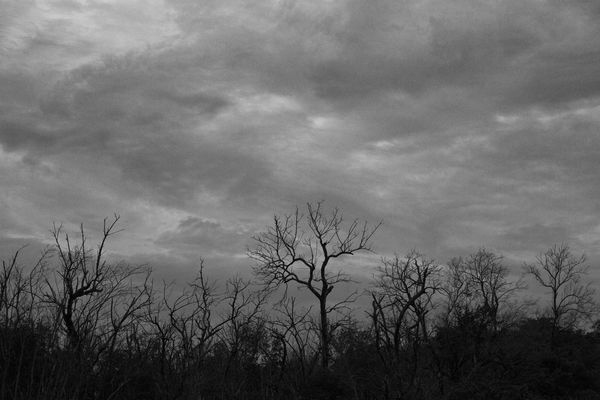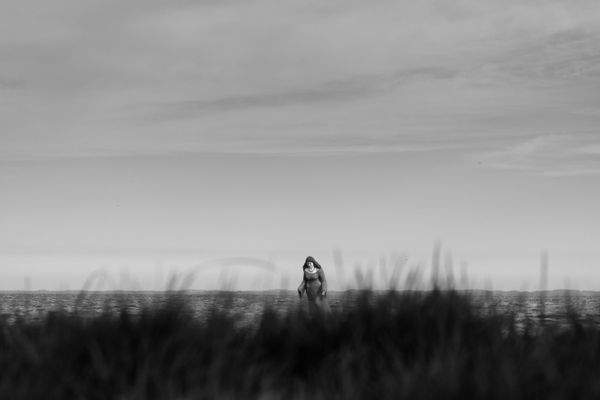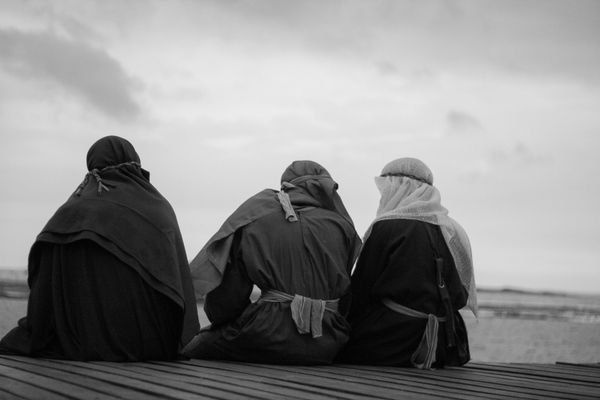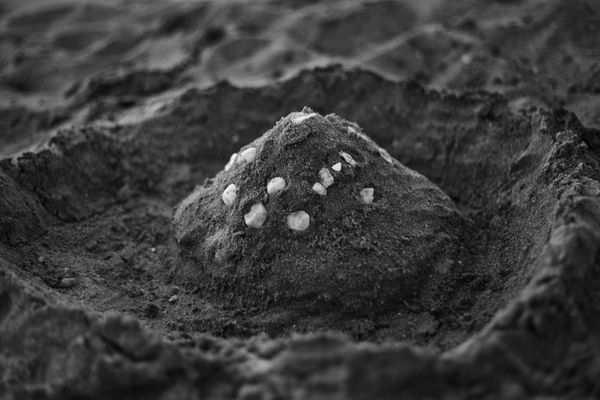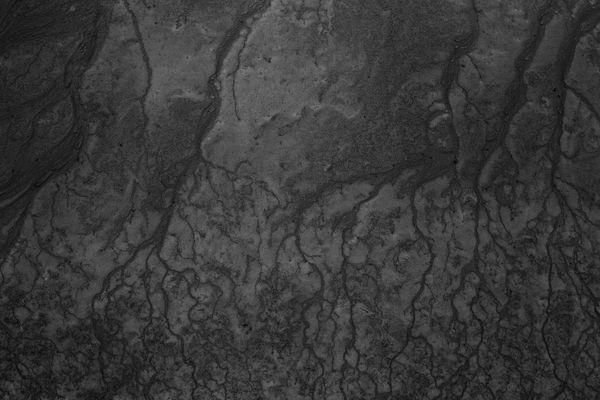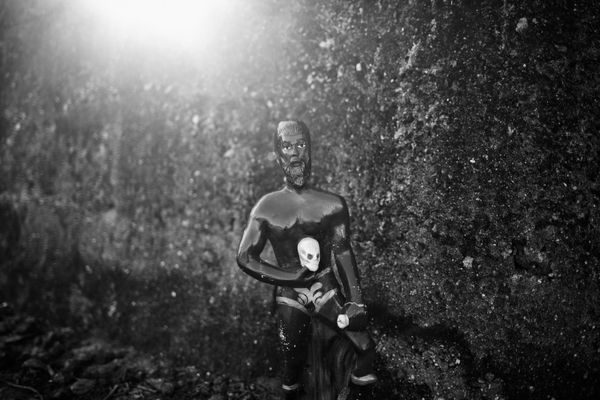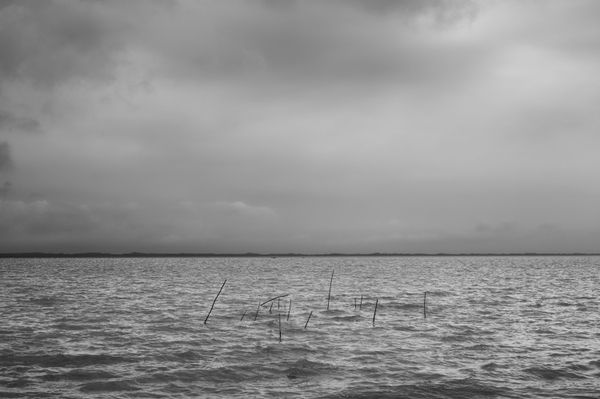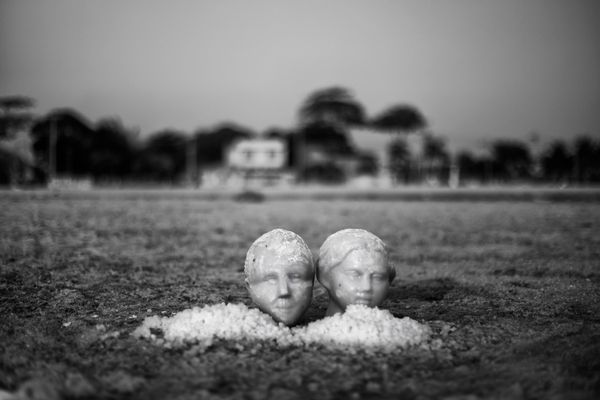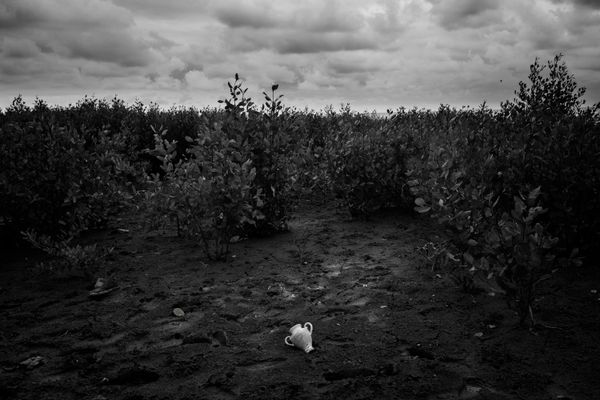Porto: between the spirits and the fish
-
Dates2012 - Ongoing
-
Author
- Topics Landscape, Fine Art
- Location Rio de Janeiro, Brazil
Sepetiba is a small neighborhood located in the west side of Rio de Janeiro and its coastline has three beaches. Much sought after until the 1980s for its tranquility and beauty, Sepetiba is now a forgotten place trying to keep its traditions alive.
Sepetiba is a small neighborhood located in the west side of Rio de Janeiro, Brazil. Its coastline is fronted by the Sepetiba Bay and it has three beaches. Much sought after until the 1980s for its tranquility and beauty, the beaches in Sepetiba are currently degraded and polluted. Port activities, dumping of sewage and industrial waste were the main causes for the environmental damage that has profoundly affected people’s lives.
Recently, the beaches underwent an environmental revitalization process funded by the government. A batch of sand was extracted from an underwater field in the same bay and subsequently placed over the contaminated mud and sand that had accumulated on the soil throughout the years. The community received a two kilometer strip of restored sand and could finally go back to reproducing some of their cultural practices.
However, the water remains polluted. The fishermen who earn their livelihood from this, struggle to survive with the scarcity of fish, oysters, clams and shrimp. The government failed to fulfill its promise of treating the sewage dumped into the bay and experts believe that the damage suffered over the years is now irreversible.
Besides fishery, a widespread practice in the beaches of the community are the religious rituals. Sepetiba has a considerable number of spiritualist temples focused on afro-Brazilian cults. Locals and tourists from several parts of the city usually go to the beaches of the community to perform spiritual works and visit the "terreiros" (Afro-Brazilian religious temples) of the region for the practice of Umbanda and Candomble, the most popular religions of African origin in Brazil.
Unfortunately, the persecution of afro-Brazilian cults has been increasing in Brazil. Spiritualist temples are often under the target of attacks, such as arson fires and depredation of its religious artifacts. Prejudice also affects practitioners of these religions, which tend to suffer different types of aggression, such as insults and physical violence. There are two main causes for this hostility: one is based on the Brazilian endemic racism, as these religions have African roots being widely practiced by black people; the other reason is that a fair share of the population bilieve that the invocation of spirits in are manifestations of demons.
It’s in this context of environmental degradation and religious intolerance that the community and its devotees practice their spirituality, taking the beaches as the main place for the manifestations of their faith.
I´ve returned to the place where I grew up to build an poetic memorial about this land and its elements - the divinities, the waters, the men and the fishes.
Porto - between the spirits and the fish is a story about nature, spirituality and belonging in a place where death, life and magic blend themselves and move through the times and tides.
